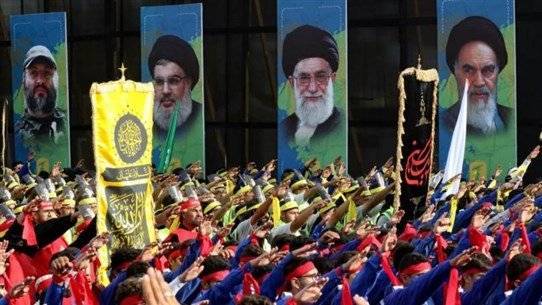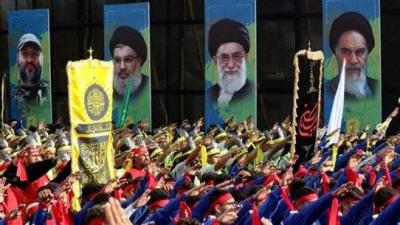Lebanese people often cite a famous saying by President Camille Chamoun regarding the interconnectedness of Lebanon and Iraq. In the 1950s, Chamoun stated that Lebanese eyes must remain fixed on Iraq, as it is the balance of the region—whether its peoples will remain united or head towards division. A strong and prosperous Iraq signifies stability for Lebanon.
This saying continues to be invoked with every exceptional development in Iraq. Numerous indicators suggest a connection between the two countries, particularly in the post-American invasion phase of Iraq and the overthrow of Saddam Hussein, which was followed by a surge in activity in Beirut, culminating in the assassination of President Rafik Hariri and a strong Iranian presence in both Iraq and Lebanon.
The Iranian-American overturning of the results of the 2010 Iraqi parliamentary elections, which nullified Ayad Allawi’s mandate to head the government in favor of Nouri al-Maliki, resonated in Beirut through Iran's disruption of the Sin Sin Lebanese equation, manifested by Hezbollah's coup against President Saad Hariri's government in 2011.
In 2014 and the subsequent war against terrorism, Qassem Soleimani fought alongside Popular Mobilization Forces against ISIS, while U.S. aircraft provided air cover. This situation reflected in Lebanon with Hezbollah's battles against extremist factions in the eastern mountain ranges. During the battles for liberation in the mountains, there was coordination between the Lebanese army and Hezbollah, alongside a joint operations room in Baalbek involving U.S. forces and the Lebanese army, of which Hezbollah was not far while engaging on the ground.
The October Revolution erupted in Iraq in 2019, which was quickly followed by the October 17 Revolution in Lebanon. The realities, demands, and rhetoric were closely aligned between the two revolutions. After the Iraqi parliamentary elections, the Iraqi parliament struggled to elect a president and form a government. This is likely to recur in Lebanon. As Iraq experiences rapid developments, its repercussions are significant and powerful in the region, compelling Lebanon to remain observant.
The Iraqi-Iranian conflict is poised for escalation, with an ideological dimension that multiple references may converge on in Qom and Najaf. The monolithic guardianship of the jurist has led to a decline of the Najaf theological seminary, indicating a profound crisis within that institution. Several religious authorities prioritize Najaf's independence. This division also has implications for Iranian political realities, influencing various opposing orientations on external issues, such as the nuclear and Iraqi files.
Some Iranians are keen on maintaining ties with the Popular Mobilization Forces and the coordination framework and its allies while preserving relations with Muqtada al-Sadr and coordinating with him. Other factions within Iran reject this approach. Nevertheless, proponents of the former standpoint argue that the upheaval in political and social conditions aims to convey to the Americans that no one can address the situation in Iraq without Iranian influence.
The battle at Iran's borders is driven by intertwined factors that complicate the formation of a clear opinion on the direction of events in Iraq. However, at the heart of these struggles lies the oil issue, amid an international need for this strategic commodity in light of the Russian war on Ukraine. Prior to Iraq, the destabilization in Libya threatened oil exports, and instability in Iraq, which produces about four million barrels daily, would benefit Tehran, allowing it to leverage this for pressure on international powers to agree to sign the nuclear deal, enabling Iran to export its oil.
Yet, alongside Iran’s attempts to reap benefits from the chaos, with the absence of alternative political bodies, the battle is unfolding at its borders and within the supposed sphere of its influence, or at least what Iran perceives it to be.
Between Beirut and Baghdad, there is a historical fact reinforcing the connection between Iraq and Lebanon: following the 1958 coup against the monarchy in Iraq, U.S. forces landed on Lebanese shores. This does not imply a repeat of that scenario, nor an extraordinary American interest in Lebanon. However, the geopolitical implications of these Iraqi developments must be acknowledged, especially regarding Iran’s insistence on controlling the situation there amidst ongoing tensions.
Such circumstances compel various forces to avert this reality and its consequences for the Lebanese arena. There is a rejection of Iran's grip on the decisions and fates of several Arab countries. Iran holds extensive control over the Lebanese and Syrian shores, which is unacceptable both within these countries and strategically. Lebanon must remain vigilant and anticipatory, for what happens in Baghdad will surely echo in Beirut.




